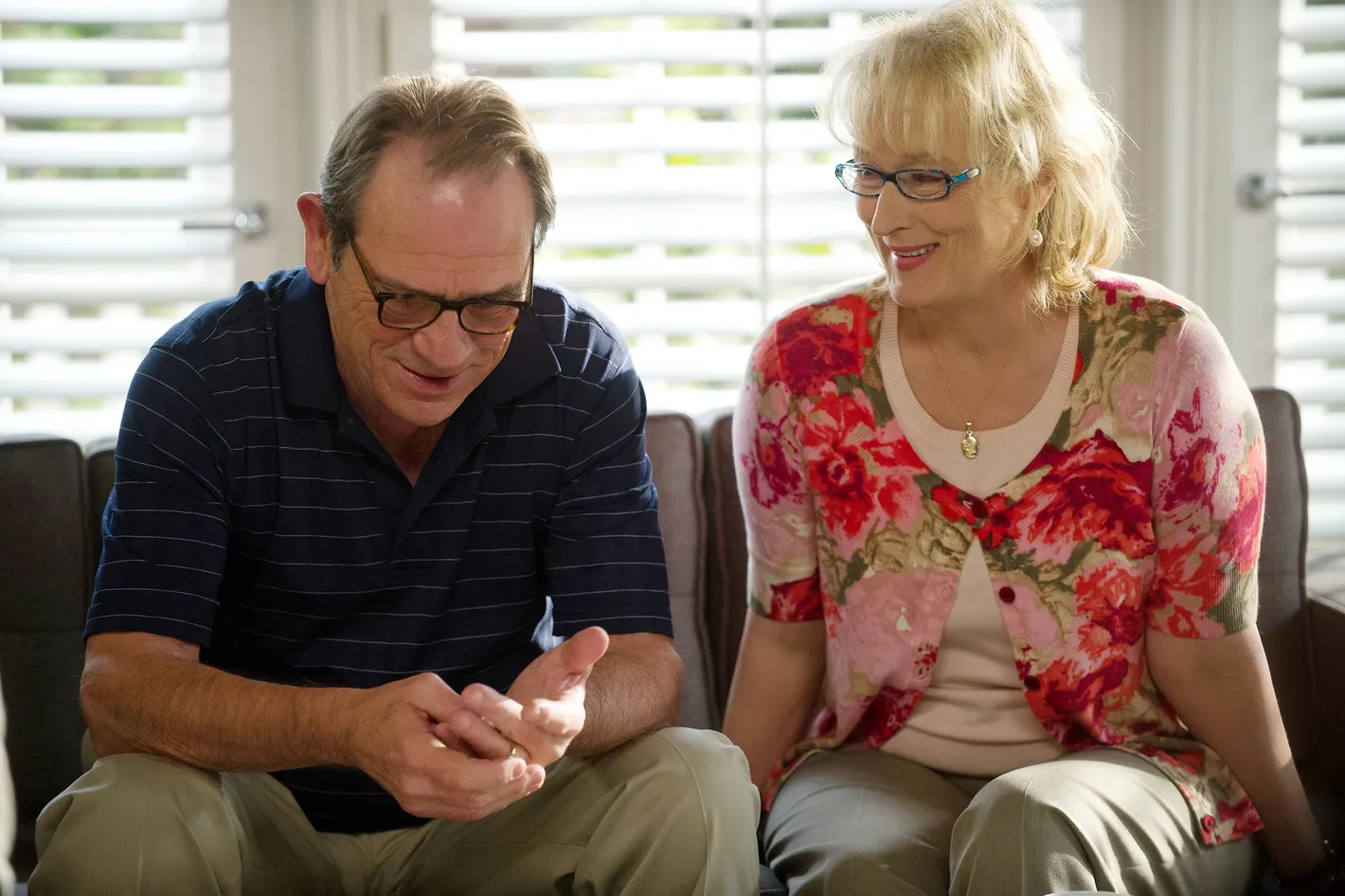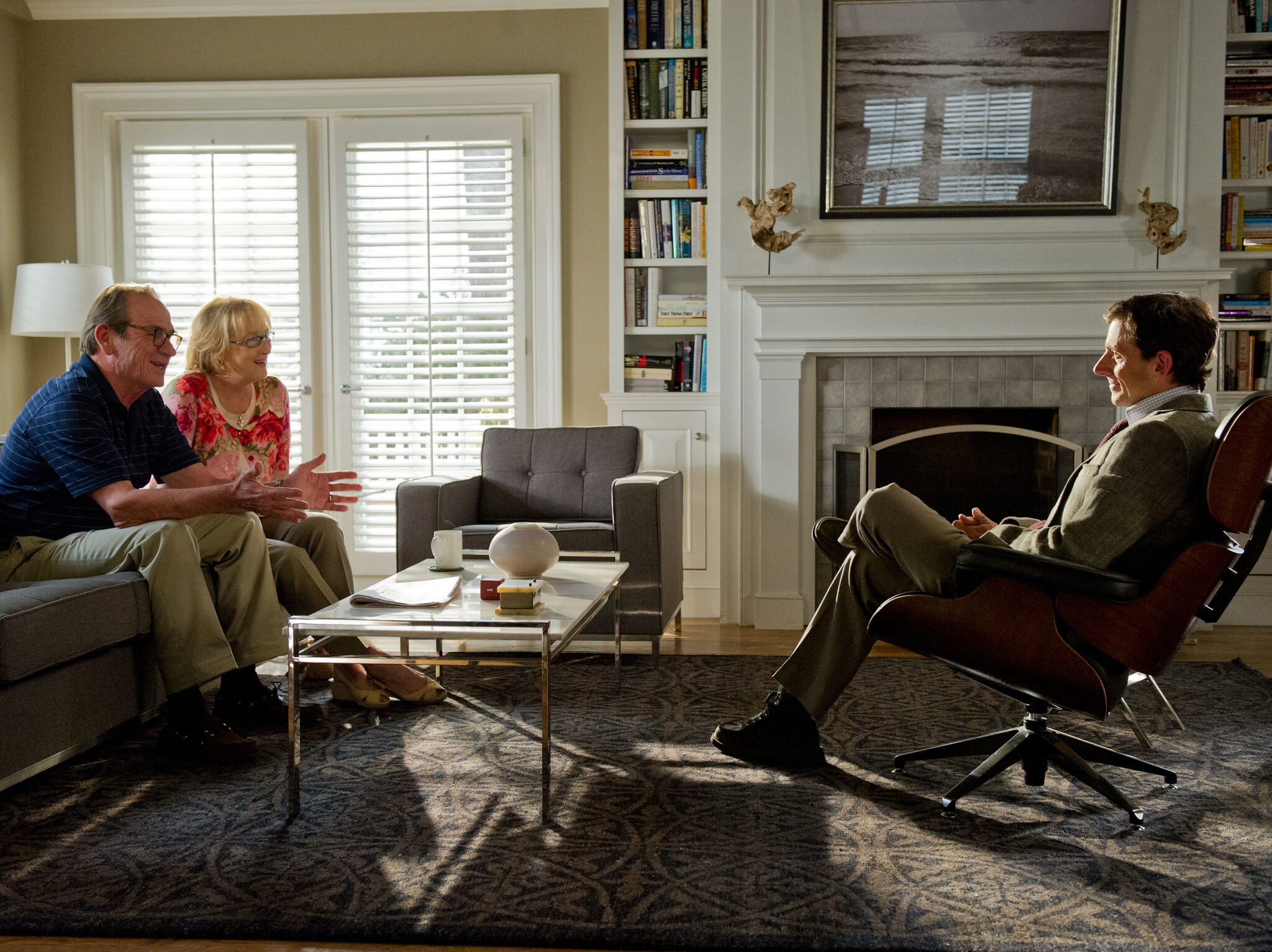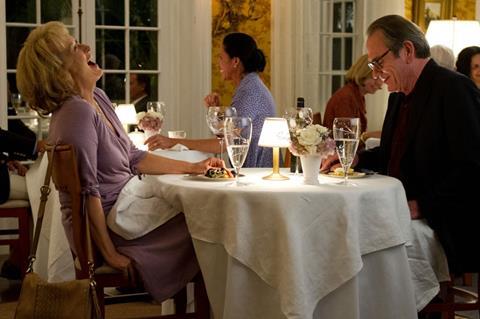Dave Frankel’s Hope Springs is a quiet, gentle movie about a middle-class couple who have been married for so long they have lost themselves, “I think I might be less lonely if I were alone.”
Frankel’s directing is, at times, perhaps a little too trite; he too often leans too heavily on songs that have lyrics that tell you what to feel. But he’s helped by Vanessa Taylor’s scripts and two of the best movie stars of the time, Meryl Streep and Tommy Lee Jones, as Kay and Arnold.

The beauty of Hope Springs is how it maturely and compassionately portrays Kay and Arnold’s struggles with intimacy. They sleep in separate bedrooms, Arnold has sleep apnea, and Kay feels like they are in a rut. Taylor’s script cleverly alludes to issues Arnold has with insecurity and Kay’s possible anxiety, exploring them with grace and finesse.
Her script treats sex with a matter-of-fact manner that sidesteps salaciousness but never feels overtly clinical. Hope Springs is a movie that could have easily been a boorish cringe comedy that mocks its characters but instead feels refreshingly adult and loving towards them. Streep and Jones are legendary stars but are not without performances where they went too broad. But Streep, Jones, and Frankel strike the right note of restraint here.
The comedy comes from understanding and empathy, not simply mockery and humiliation. Take the scene in which Kay tries to give Arnold oral sex in a movie theater. It’s here where Frankel’s direction shows a shrewdness. Frankel and his cinematographer Florian Ballhaus switch between subjective and objective shots, showing us both Kay and Arnold’s point of view.
Steve Weisberg’s editing ties this together to give us a tender scene that would have felt crass in lesser hands. After the scene in the theater, Weisberg and Frankel cut to Kay and Arnold confessing to Dr. Feldman what went wrong, and that’s where the comedy is. Streep’s delivery of “I’m not the type of woman who can commit an illegal act in a movie theater” is sublime. After hearing Jones’s Arnold talking about the concrete floor and cup holders, this makes the comedy stems from how reality can clash headlong into fantasy.
Weisberg’s editing is simple, often cutting to wide shots for reactions such as when Kay admits to not having any fantasies. We see Arnold’s look of shock and his look at Dr. Feldman. Weisberg, Ballahus, and Frankel use a straightforward but effective staging.
Jones and Streep sit on opposite ends of the couch, slowly moving toward each other and then moving away. It’s not revolutionary, but it’s effective as a way to use space and character positions to show how distant characters feel emotionally from each other. Kay and Arnold have grown apart, and we wonder if they can grow back together for much of Hope Springs.
Of course, they will, but to Frankel and Taylor’s credit, we begin to wonder how easy it will be for them. Arnold and Kay’s problems run deeper than a one-week therapy session, no matter how intensive. While they eventually find their mojo again for a happy ending, I liked that it took them longer than a week to get there.

Taylor’s script is observant and funny, but it’s how Streep and Jones make the words sing. Arnold is a role tailor-made for Jones, a lovable crank and one of my favorite working actors. “I guarantee that place does not serve breakfast for under ten dollars.” Yet underneath all the curmudgeon, Arnold is a man who loves his wife and yet struggles to show her how much he cares. Jones does a beautiful job taking little one-off lines and turning them into little windows of Arnold’s psyche, such as a line early on where he talks about his big brother, and we see where some of his insecurity might stem from.
Streep is the perfect counterbalance. Her Kay is anxious and shy but not timid. Like Jones, Streep excels in doing little things that give us insight into her character. She also has one of the biggest laughs, involving eating a banana while reading a sex book.
But it’s how Jones and Streep play Arnold and Kay. So often, couples in movies behave as if they have only been together since the camera started rolling, or worse, if it’s a comedy, we’re left wondering why they are even together. Both are movie stars, but Frankel and Ballhaus allow them to look their age. Their performance is a team effort, bouncing off each other, showing us a grounded couple that we can easily believe has been married for thirty-one years.
Carrell, as Dr. Feldman, likewise, turns in a subtle performance. He guides Kay and Arnold through these difficult times. The silence he let lingers before answering a question and the kindness he shows towards Kay and Arnold speaks volumes about his character without him having to say so.
Hope Springs is also a portal into what feels like another world economically. Kay springs for a one-week intensive couples therapy with Dr. Bernard Feld (Steve Carrell) for four thousand dollars, and while Arnold is shocked by the announcement and the price tag, they can afford it. Arnold is a partner in an accounting firm, and Kay works part-time at one of those clothing stores you see in an outdoor mall. They make enough but only just. But they can afford vacations and two cars.

They both work, own a lovely house, have two grown kids, and can drop four thousand dollars without much care. Well, Arnold grouses about the expense, but he grouses about the cost of everything. When Kay tells them the diner has a breakfast special, he mutter,s “What’s special about eleven seventy-five?”
It feels daring in how it openly discusses sex and prefers the drama of an interior life instead of the broad theatrics we probably would have gotten without Taylor’s fully realized and honed script. Therapy scenes can often veer into cliche, but Frankel’s treacly music choices aside, these scenes allow Ballhaus’s camera and Taylor’s script to help his actors turn in powerful, tender performances. I shed more than a few tears as Kay and Arnold tentatively reached realizations about themselves and their marriage. The stakes are” low,” but only because Hope Springs is not interested in big flash melodrama.
Images courtesy of Sony Pictures Releasing
Have strong thoughts about this piece you need to share? Or maybe there’s something else on your mind you’re wanting to talk about with fellow Fandomentals? Head on over to our Community server to join in the conversation!

